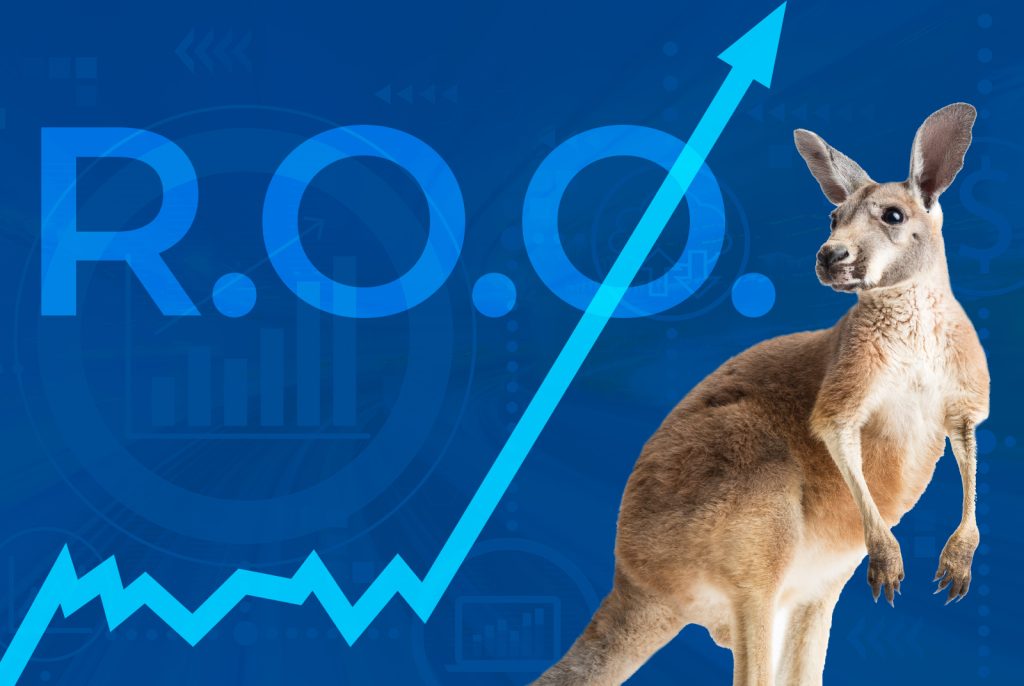“What’s my Return on Investment?” he asked, secretly lining up his MBA buzzwords into a queue, ready to pounce on my answer. The question from a proposed client was not unusual, but it did prompt me to answer in another way.
“I have no idea,” I replied. “We don’t measure the outcome of our work that way.”
Wow, did that ever start the ball rolling . . . downhill. The MBA litany gushed forth in a torrent. The wannabe client unloaded as if I had drifted into the Jeopardy category, Meaningless Jargon. ‘This key performance indicator (KPI) is often used in business to determine the success of an investment despite several limitations, such as failing to consider the longer and more intangible effects of building an industry-leading brand.’ — “What is ROI, Ken?”
It’s a fair question, but one that is usually asked out of context. It seems that the obsession with Return on Investment is the rock upon which all sales and marketing decisions are founded these days, and middle managers obsess over predictions with obtuse accountability.
So, I nudged my prospective client into another lane. I asked him to revisit the ROI equation from my standpoint, that of a 37-year-old marketing firm with a history of success. We manage fundamentals associated with selling things, getting paid, and selling them again. “The primary components of your ROI question are out of our control,” I said. “We don’t set your prices, tell your sales reps where to park, source your raw materials, or spiff your labor on the factory floor. That’s up to your management team.”
Silence.
“What we can assure you, however, is a Return on Opportunity,” I continued. “We can help you set the table, set up the sales call, predispose the client to interpret your brand as a quality statement, and shape your value proposition. We can also help you explain things,” I emphasized. “But we cannot control your Return on Investment.”
At OffWhite, the evolution of our entire marketing theory is based on a contemporary truth: your website is the center of your universe. Everything seems to cross this threshold in advance of a query and certainly in advance of a sale. Like it or not, that’s how it is today, and that’s not bad. But left alone to drift in the solar wind, the website cannot be much more than a passive version of a calling card unless . . . unless we drive traffic to our digital shores, and we peek at who’s visiting, where they go, how long they stay, if and when they come back, and where they are when they leave us. Regardless, we capture them.
There’s more, of course, but our digital platforms include a robust CRM function that lets us account for the messages we develop, the offers we make, and the dollars we spend in SEO and SEM. In other words, we measure the Opportunity. And once measured, we can calculate the Return on Opportunity. My creative staff forbids me from branding this by throwing a kangaroo icon into the mix, but for now, I call it the ROO.
No ROO, No ROI
As marketers, we’ve finally landed in a world where accountability is possible. Even when online sales are transactions embedded in websites, the fact is we cannot sell your product for you. We can, however, put you in a position to do it yourself. In capital equipment marketing, for example, we like to create the conditions for a “consultative sale.” This terrain puts informed salespeople in the sacred role of helping a customer solve a problem or, in MBA-speak, address a “pain point.”
Return on Opportunity (ROO) is based on our ability as a team – you and us – to balance the factors that drive people to your website, trust your brand, empower your sales staff, and generate data that helps us zero in on those who need and want our solutions and those who do not. Think of it as “information that sells.”
For another take on Return on Opportunity, read a nice article by Chris Cancialosi published in an October 2013 issue of Forbes Magazine. Here, Cancialosi explores the components of ROO and how they combine to form a funnel that converges into sales, from ROO to ROI.
As a marketing firm, Return on Opportunity is exactly what we should deliver. Opportunity leads to sales, and sales lead to Return on Investment, and that, folks, is why your website and all that it represents must be your outpost in a global economy. Here, you have the ability to capture who, what, when, where, and why. Only then can you decide what’s next.


